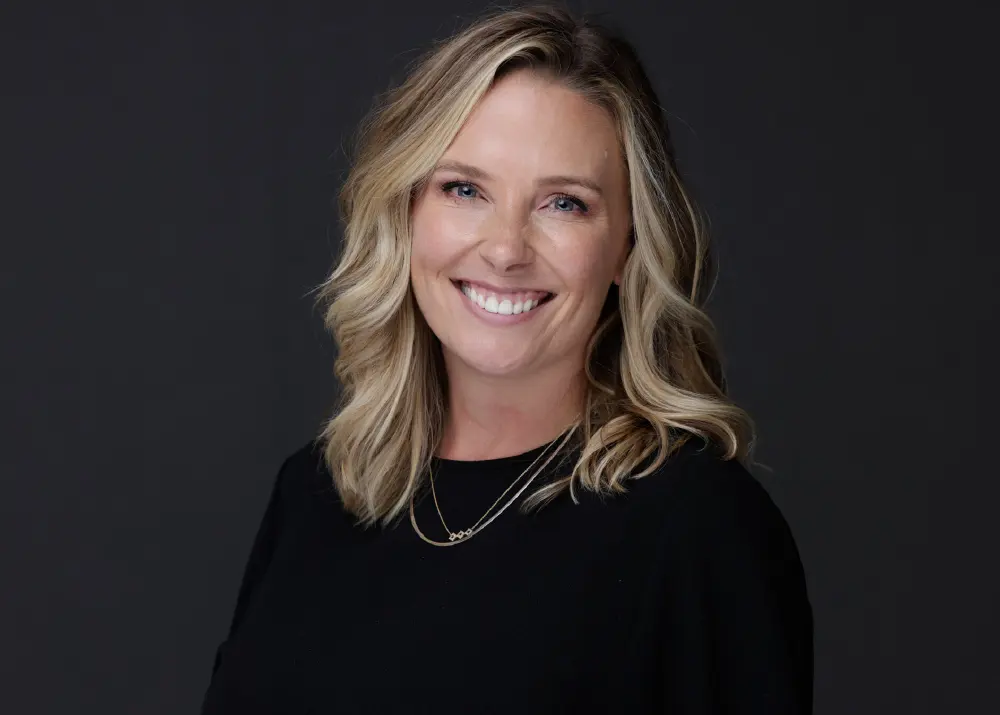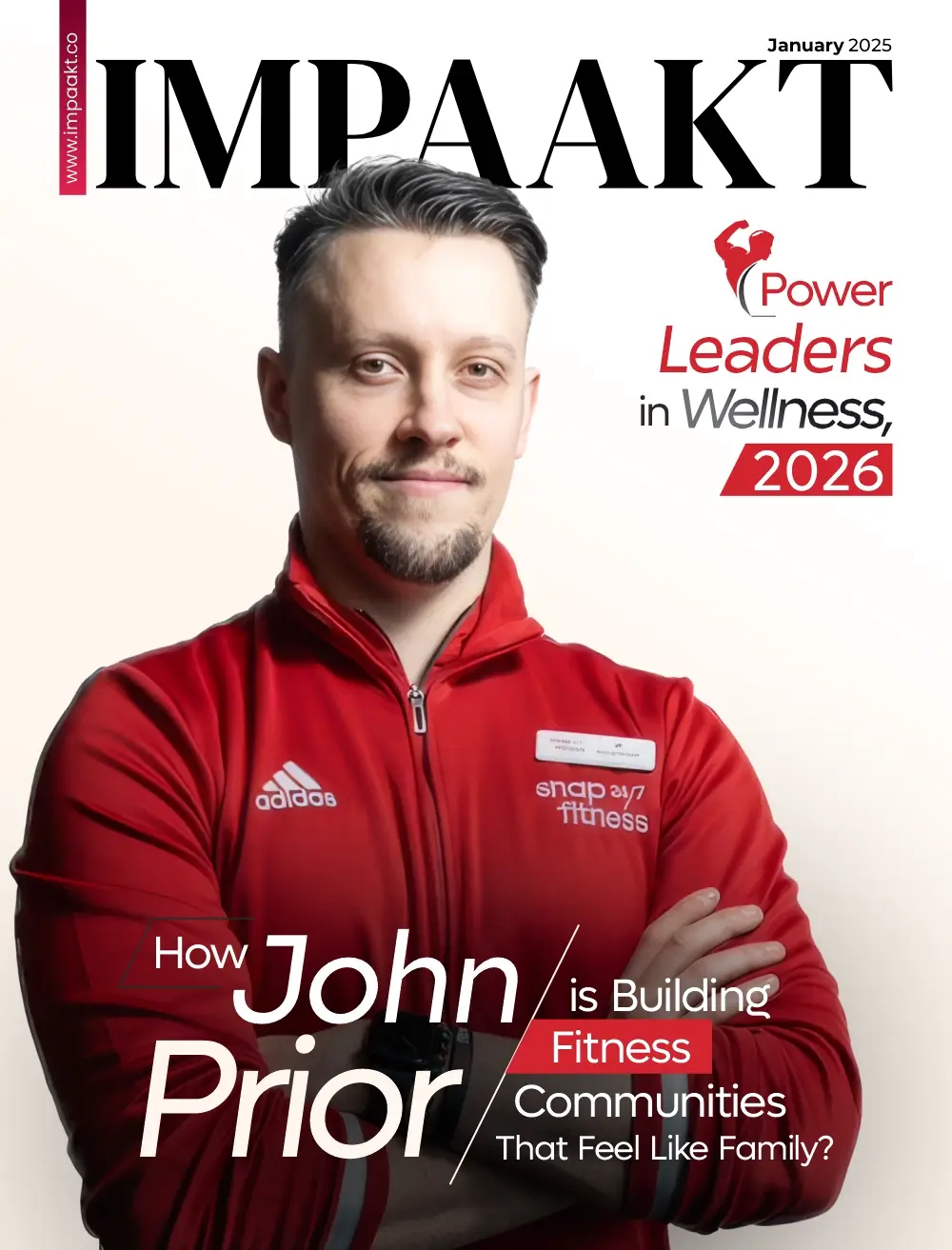Phenom, through its cutting-edge platform, is helping a billion people find the right work. This remarkable achievement is not merely a testament to technological prowess; it is a reflection of the exceptional in-house culture carefully cultivated by the HR pioneer.
Within the fabric of Phenom’s success lies a fundamental acknowledgment that leadership plays a crucial role in shaping and upholding its unique culture. Empathy lies at the core of how Phenom functions as an organization and practicing what it preaches, Phenom has built a culture that is anything but normal.
Standing true to Phenom’s philosophy is Lindsay Mareau, Vice President of Strategy at Phenom. She says, “It brings me joy to see how people open up and share themselves when they feel heard and seen and appreciated.” Lindsay not only recognizes the human side of organizational dynamics but actively champions empathy as a cornerstone of her leadership style. Lindsay’s journey from a small Iowa town to the bustling cityscape of Philadelphia has not diluted her understanding of the power of connection, thanks to her roots.
In this following interview, we delve into how Lindsay is breaking the mold, fostering a culture of empathy within her leadership.
Lindsay, can you tell us about your background and how you went from a small town in Iowa to your current role as Vice President of Strategy at Phenom?
I currently live in Philadelphia — the City of Brotherly Love has a population of approximately 1.5 million people. However, my early years were dramatically different. Growing up in a town of less than 1,000 people forces you to work together with others. What the town lacked in size it more than made up for in community spirit and work ethic. Farming families are some of the physically toughest, most focused people you’ll ever meet. They’re also the most generous and giving of their time. They’ll do anything for a neighbor.
My brother and I were raised by our dad, the town mechanic. Our mom lived in North Carolina. I left Iowa to go to college in North Carolina, but quickly returned when I realized the big city just wasn’t for me. There’s the old saying you can’t get home again, but I did in my case, and it turned out I could go home again.
That’s where I transferred to a small college and met a Spanish teacher who encouraged me to spend a summer abroad in Spain. It was wise advice. More on that in a moment.
My first job out of college was with Maytag, the big appliance maker. I worked in sales, and the company had an intense training program. Things were going great and I was learning a lot. But then the company was acquired and I was one of many people who were laid off. Not exactly the way I was hoping my first real job would end.
Sometimes life forces you to the evolution that you need by providing a situation where you really have no other choice, and that was one of those for me. It was a growing up moment. I learned a lot about the power of plowing through adversity and never giving up.
I came to Phenom after several twists and turns in my career. I’ve been with the company for six years, and the last two years have been a high point in terms of personal change and transformation. I have discovered immense professional satisfaction in listening to customers’ stories. I ask curious questions, with an intention to understand and support. The strategy role allows me to connect with people on a deeper level to figure out solutions to their problems.
Could you share your transformative experience studying abroad in Spain and how it changed your outlook on the world?
It was such an eye-opening experience where something huge shifted inside of me. Instead of a fear of the unknown and hesitation of new cultures and experiences, I had an awakening to the fact that the world is such a big, beautiful place. Fear of leaving the comfort and security of the nest was replaced with a zeal to return to Spain over and over. And I did!
Your career began in sales at Maytag. How did this experience, particularly the intense training program, help you evolve as a professional?
The program lasted eight weeks and was designed to push people out of their comfort zones. It worked. We would spend hours in front of our peers doing product demonstrations. The demos would be recorded and critiqued, and then we’d go back and record a new demo all over again. It was physically and emotionally challenging, but looking back, it was the best thing to happen to me.
I went from hating public speaking to realizing that I could actually be good at it. The experience also taught me not to do things halfway, that the more present you can be in a situation, the better. When things are at their hardest, they matter the most.
Can you elaborate on how you transitioned from being initially hesitant about public speaking to becoming a confident presenter? What were the key turning points in this transformation?
I steadily accumulated little victories that built up my self-esteem. I felt empowered to do whatever I set out to do. It was a total shift in perspective for me in terms of what excitement looks like, what meaningful connection looks like, and how to create and sustain communities.
You mentioned a preference for “playing small ball.” Could you explain what this means and how it shaped your career choices?
After working for big, nationally known brands, I had an opportunity to join a friend’s small business, a fire and water restoration company. It was looking to expand so I was tapped for that role, and I just loved the closeness and camaraderie. There were 15-20 employees in the whole company. It was so fun to be a part of something new, exciting and unknown with your friends. Even with Phenom’s growth and success, it still feels that way, which is awesome.
You emphasized the importance of deep listening and empathy in your career. Can you share examples of how these skills have played a pivotal role in your professional journey?
It’s listening without an agenda. I’ll be on a call with a customer or potential customer, and I’ll ask them curious, inquisitive questions, and then I just listen to them. It brings me joy to see how people open up and share themselves when they feel heard and seen and appreciated. There’s a lot to be said about empathy’s place in business. Walking in a customer’s shoes fosters mutual trust and shows that you really care about their well-being. Customers will remember and appreciate that.
I think it was a Harvard Business School professor who coined the phrase “psychological safety.” It basically means feeling comfortable enough to speak up, to take risks or share bad news without worrying about negative blowback. I like to give people the freedom to open up in a way that makes them feel valued.
You’ve referred to yourself as a “transformation junkie.” How does your role at Phenom allow you to fulfill this passion for transformation?
Personal and professional transformation are inexorably linked together. People who are open to new ideals and new ways of looking at themselves tend to bring that same mindset to their work. I’m helping major organizations revamp the way they hire, retain and develop their employees through artificial intelligence, automation, and experience. It’s something to see the look on HR leaders’ faces when I run them through the number about how much they can save in time, efficiency and cost with AI.
What accomplishments at Phenom are you most proud of, and how have they contributed to the company’s success?
A lot of what I do takes place behind the scenes, and I’m thankful for that because that’s often where the action really is. If I had to point to one or two accomplishments, I’d say growing the size and scope of the solutions consulting team, the storytelling and confidence-building arm of the sales team.
The growing solutions consulting team has been instrumental in signing a number of high-profile customers in strategically important growth areas for Phenom.
From time to time I’ll step in and help resolve technical issues quickly with customers, which in turn fosters a strong sense of trust, the worldwide currency of business.
How do you plan to help your teams at Phenom move from a “head” mindset to a “heart” mindset, and what benefits do you foresee from this shift?
Most change initiatives at organizations fail because individuals don’t have the tools to deal with stress, anxiety and so on. By giving my team the mental tools and the understanding to make changes in their lives whether it’s inside or outside of work, they come to the realization that life doesn’t create you, you create your life, your thoughts, your actions and your feelings.
I want them to recognize that instead of becoming the victim to their environment, the victim of their life, they get to decide how their day goes, not anyone or anything else.
Could you discuss the concept of “creating a safe space” for employees to be their best selves at work and how you’re leading this at Phenom?
Again, it’s those mental tools that empower people to make decisions for themselves. I’m very proud of this work.
What advice would you give to young professionals who aspire to have a successful career like yours, characterized by agility, empathy, and personal growth?
Your future is inside of you. Nowhere else.
As a leader, how do you balance personal and professional development, and what strategies do you use to ensure both aspects progress hand-in-hand?
I take a deep breath and I keep at it. I remember when I first got into software. I didn’t know what I was doing but I studied hard and I kept asking questions. Here I am, a decade later and I’m working on amazing HR technology at a company with an awesome people-first culture.











